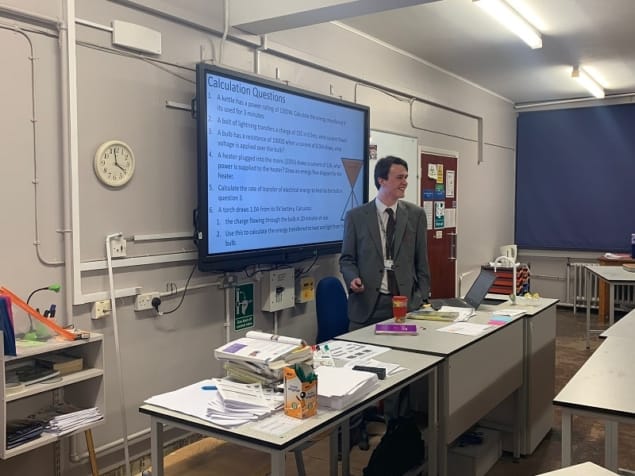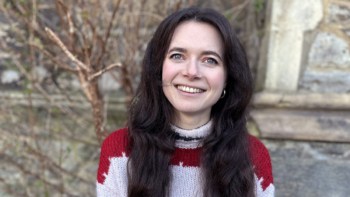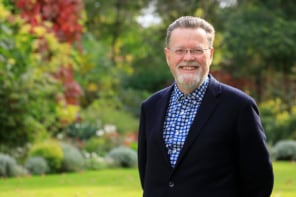Two early-career teachers explain how helping school students to understand the beauty and complexity of physics offers a stimulating, fun and rewarding career option

According to the latest annual survey of UK graduates by Prospects Luminate, secondary education is the third most popular professional career choice for physics graduates. Indeed, for anyone who enjoys discussing fundamental scientific concepts with young and curious minds, teaching physics at secondary school promises a fun, rewarding and varied work environment.
“I wanted a job that would make me happy,” says Oliver Alexander, who gave up the opportunity to pursue a lucrative career as a patent attorney to become a physics teacher. “I wanted to help and influence people, and teaching physics to secondary school students has the potential to change their whole lives.”
I was miserable in a desk job and I knew I needed to do something else. Being a teacher is crazy in a good way. I haven’t had a dull moment since I started.
Oliver Alexander
Alexander admits to having some reservations about switching tack and taking an extra year to retrain – above all whether he would be good enough to communicate the beauty and complexity of physics to a classroom of teenagers. But now, in his first full year as a trained physics teacher, he has no regrets.
“I was miserable in a desk job and I knew I needed to do something else,” he says. “Being a teacher is crazy in a good way. I haven’t had a dull moment since I started.”
Part of that enjoyment is getting to know his students and classes, and seeing just how quickly they develop their scientific knowledge and skills. Aidan Reynolds, who has also just completed his first term as a physics teacher, can already sense the progress his students are making.
“During my training year I mainly taught A-level students, but now I have some classes who are just starting to tackle some GCSE topics,” he says. “They are newer to the subject, and you can really see them develop their understanding from one day to the next.”
Physics to the fore

Reynolds and Alexander relish the opportunity to discuss and explore physics ideas with their students, and they work hard to devise different teaching approaches to help different age groups to properly understand fundamental physics phenomena. “It can be tricky to get some of the complex ideas across, particularly when you have studied them in such depth at university,” comments Reynolds. “It’s quite a fun challenge to take something that I know is very complicated, and making it simpler by breaking it down into its key component parts.”
With physics teachers still in short supply, Reynolds often has the opportunity to cover more advanced topics with A-level groups to help them prepare for university admissions. “Tackling those harder questions keeps my physics brain ticking over,” he says.
It’s a fun challenge to take something that I know is very complicated, and making it simpler by breaking it down into its key component parts.
Aidan Reynolds
For anyone thinking about becoming a physics teacher, both Alexander and Reynolds have a simple piece of advice: “Go for it!” Reynolds adds that it can be a good idea to try to spend a day or a week in a school to get a feeling for the environment. “I also did some tutoring, which makes you start thinking about how you would explain key concepts to different age groups,” he says. “When you go and observe some lessons you realize that it’s not as scary as it might seem from the outside.”
Both Alexander and Reynolds were supported through their postgraduate training year by the Institute of Physics (IOP), which runs a scholarship programme funded by the Department for Education for trainee secondary-school physics teachers in England. The Teacher Training Scholarship scheme offers successful candidates tax-free funding of £26,000 to support them through their training year, as well as a structured programme of continuing professional development to help scholars develop more effective approaches for teaching physics. Trainee teachers accepted onto the scheme also benefit from IOP membership during their training year, as well as access to a vibrant community of fellow scholars.
Has this article inspired you to consider a career in teaching? Take our short survey and tell us your views.
“My postgraduate training gave me lots of general teaching skills, but the IOP scholarship provided a more direct connection to the physics,” says Reynolds. “The conferences and lectures organized by the IOP as part the scholarship helped me to apply the general techniques I learnt during my teacher training to physics. Talking to other teachers who are passionate about physics education also really helped me to develop my explanations, particularly for the younger age groups.”
Making a connection
Both Reynolds and Alexander enjoy the social interactions with their classes and, after just a few weeks of teaching in their new schools, they are starting to make personal connections with their students. “They start talking to you about why they are interested in different subjects and what they want to do later on,” says Alexander. “Today a student came to tell me that he’d applied to college, and I was really happy that he had wanted to share that success with me.”
One term into his first academic year, and Alexander can already see the impact his teaching has had on his students. “At the start of year they didn’t know how to go about solving a problem,” he comments. “Now, when I ask a question on a new topic, they know how to approach it even if they don’t get it right first time. They’re thinking more like physicists, and that’s so lovely to see.”
Outside of the scholarship scheme, Reynolds still keeps in touch with a wider network of physics teachers through an e-mail group run by the IOP, the Physics Teaching News and Comment discussion forum (PTNC).
“There are so many teachers on the group who are sharing ideas and collaborating together to solve the same problems,” he says. “It’s absolutely amazing to be a part of that community and get that support, and I’ve found lots of resources on there that I’ve used myself or recommended to my students.”
The IOP also provides plenty of learning materials for physics teachers, including more than 2500 teaching activities that are freely available through its IOPSpark service, and it runs the Talk Physics forum for anyone involved in teaching physics in secondary school.
“Making the leap into teaching has definitely been worth it”, says Alexander, who has found his early days both challenging and rewarding. “There are definitely stressful days, and times when you feel like you’ve messed everything up, but for every day like that there are two or three where everything goes right,” he says. “When it all clicks into place you feel like you have had a huge impact.”
Has this article inspired you to consider a career in teaching? Take our short survey and tell us your views.
Applications for the IOP Teacher Training Scholarship programme are open now. Find out if you are eligible and apply today.




